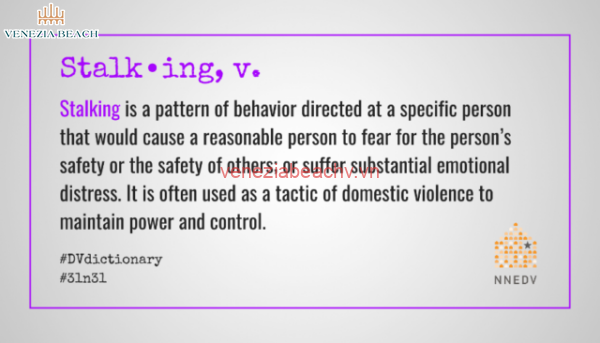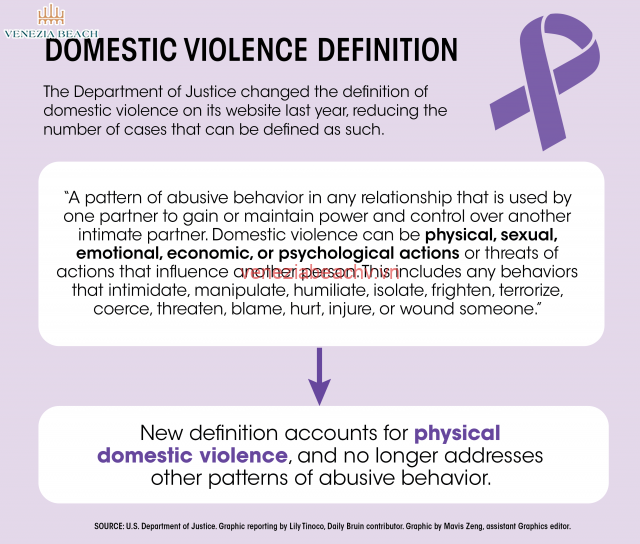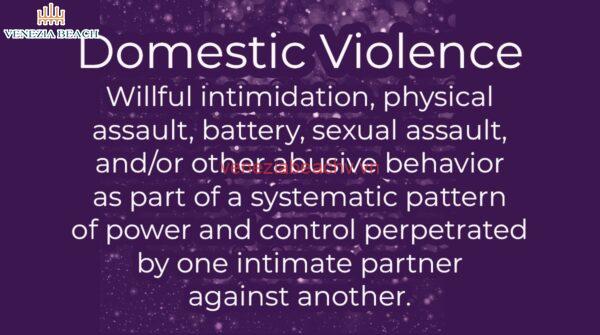Understanding Domestic Assault: What Does it Mean? Information and Resources
Curious about what does domestic assault mean? Look no further. In this informative article brought to you by Veneziabeachv.vn, we will delve into the definition and significance of domestic assault. We will explore the various aspects of this troubling issue, including its different types, the potential consequences it can have on victims and families, and the vital steps individuals can take to seek help and support. Gain a comprehensive understanding of domestic assault and empower yourself with the knowledge to make a difference.

| Key Takeaways: |
|---|
| Definition of domestic assault and its legal implications |
| Different types of domestic assault, including physical, emotional, and financial |
| The potential consequences of domestic assault on victims and families |
| Resources and steps for seeking help and support |
| Answers to frequently asked questions about domestic assault |
I. Understanding Domestic Assault
Domestic assault is a complex issue that affects individuals and families in various ways. It is crucial to have a comprehensive understanding of what domestic assault means in order to address and prevent it effectively.
The Definition of Domestic Assault
Domestic assault, also known as domestic violence, refers to any form of violent or abusive behavior that occurs within an intimate relationship. It can involve physical, emotional, sexual, or financial abuse, and it can affect people of any gender or age.
It is essential to recognize that domestic assault is not limited to physical violence alone. Emotional abuse, such as manipulation, threats, or controlling behaviors, can cause significant harm and have lasting psychological effects on the victims.
The Significance of Understanding Domestic Assault
Understanding domestic assault is vital because it helps us recognize and respond to the warning signs, support victims, and create a culture of respect and empathy. By increasing awareness and education around domestic assault, we can work towards breaking the cycle of violence and promoting healthy relationships.
The Impact on Victims and Families
Domestic assault has severe consequences for both the victims and their families. The physical injuries sustained may be visible or hidden, but the emotional scars are often deep and long-lasting. Children who witness domestic assault in their homes are particularly vulnerable and may experience trauma that affects their development and future relationships.
Furthermore, domestic assault can lead to a sense of isolation, fear, and helplessness for the victims, making it challenging for them to seek assistance or leave an abusive relationship. It is crucial to provide support and resources to empower survivors and give them the opportunity to rebuild their lives.
Providing Support and Seeking Help
If you or someone you know is experiencing domestic assault, it is essential to reach out for help. Many organizations and helplines specialize in providing support, counseling, and resources for victims of domestic violence. Safety plans, legal assistance, and access to shelters are among the services available to help individuals escape abusive situations.
Remember that seeking help is not a sign of weakness but an act of courage. Together, we can create a safe and compassionate society where domestic assault has no place.
Frequently Asked Questions about Domestic Assault
Here are some common questions regarding domestic assault:
- What are the early warning signs of an abusive relationship?
- How can I support a friend or family member who is a victim of domestic assault?
- Are there legal consequences for perpetrators of domestic assault?
- What resources are available for victims seeking help?
- How can we prevent domestic assault and promote healthy relationships?
For in-depth answers to these questions and more, refer to our Frequently Asked Questions section on domestic assault.

II. Defining Domestic Assault
Definition and Legal Implications:
Domestic assault, also known as domestic violence or intimate partner violence, refers to any form of abusive behavior that occurs between individuals in a familial or intimate relationship. It encompasses a range of actions including physical, emotional, sexual, or financial abuse. Domestic assault can have severe consequences not only for the victims but also for their families.
Physical Abuse:
One aspect of domestic assault is physical abuse. This involves the use of force that causes bodily harm or injury to the victim. It includes actions such as hitting, slapping, punching, kicking, choking, or using weapons against the victim. Physical abuse often leaves visible marks and bruises but can also cause internal injuries and long-term health issues.
…
| List of Related Posts |
|---|
| What Does it Mean When a Deer Crosses Your Path? |
… … …

III. Signs and Symptoms of Domestic Assault
Suffering from domestic assault can have severe physical, emotional, and psychological impacts on the victims. Recognizing the signs and symptoms of domestic assault is crucial to providing support and intervention. Here are some common indicators that may suggest the presence of domestic assault:
- Physical injuries: Unexplained bruises, cuts, burns, or fractures are often visible signs of physical abuse.
- Changes in behavior: Victims of domestic assault may exhibit sudden and unexplained changes in behavior, such as becoming withdrawn, anxious, or displaying a lack of self-esteem.
- Isolation: Perpetrators of domestic assault often isolate their victims from friends, family, and support networks, leaving them feeling alone and helpless.
It is important to note that these signs and symptoms may vary from person to person, and some victims may not display any visible signs of abuse. Therefore, it is crucial to approach the topic with sensitivity and empathy and encourage open communication.
Effects of Domestic Assault on Children
Children who witness domestic assault within their homes are profoundly affected by the experience. The impact can manifest in various ways, including:
- Behavioral problems: Children exposed to domestic assault may display aggressive, withdrawn, or defiant behavior.
- Emotional difficulties: They may experience depression, anxiety, or have difficulty forming trusting relationships.
- Academic struggles: Witnessing domestic assault can hinder a child’s ability to focus on their studies, leading to poor academic performance.
It is essential to provide a safe and supportive environment for children who have experienced domestic assault. Seeking professional help and counseling can aid in their healing and recovery.
Steps to Take if You Suspect Domestic Assault
If you suspect that someone may be a victim of domestic assault, it is crucial to approach the situation with care and take appropriate action. Here are some steps you can take:
- Listen and validate: Be supportive, non-judgmental, and listen attentively to the individual’s concerns.
- Encourage professional help: Suggest that the person seek assistance from a domestic violence hotline, counselor, or support group.
- Offer practical support: Provide information about local resources, such as shelters, legal aid services, and counseling programs.
- Ensure their safety: If it is an emergency situation or you believe immediate action is necessary, contact the appropriate authorities.
Remember, intervening in a domestic assault situation requires ise and support from professionals. Encourage the person to reach out to the appropriate resources so they can receive the comprehensive help they need.

IV. How to Seek Help and Support
1. Reach out to a Trusted Individual
When dealing with domestic assault, it is crucial to confide in someone you trust. This could be a close friend, family member, or a counselor who can provide emotional support and guidance. By sharing your experience, you can unload the burden and gain a fresh perspective on the situation. They can also assist you in exploring potential solutions and help you create a safety plan if necessary.
2. Contact a Domestic Violence Helpline
Domestic violence hotlines offer confidential and immediate support for individuals affected by domestic assault. They are staffed by trained professionals who can provide guidance, information, and resources. It is important to remember that you are not alone, and helpline operators can assist you in assessing the level of danger you may be facing, offer emotional support, and provide information about local resources such as shelters, counseling services, and legal aid.
3. Consult with Legal Professionals
If you are considering legal action or need advice regarding your rights and options, it is wise to consult with a lawyer who specializes in domestic violence cases. They can guide you through the legal processes, explain your rights, and help you obtain necessary legal protection such as restraining orders. Legal professionals will be your advocates in court, ensuring that your voice is heard and that you receive the necessary legal support to keep you safe.

V. Conclusion
In conclusion, understanding domestic assault and its implications is crucial in addressing this serious issue. Domestic assault encompasses various forms of abuse, including physical, emotional, and financial. The consequences of domestic assault can be devastating for victims and their families.
If you or someone you know is a victim of domestic assault, it is important to seek help and support from the appropriate resources available. Remember that assistance is available to help you escape the cycle of violence and regain control over your life.
By raising awareness about domestic assault and providing information on seeking help, we hope to contribute towards a society where everyone feels safe within their homes. Together, let’s work towards ending domestic violence and fostering healthy relationships.